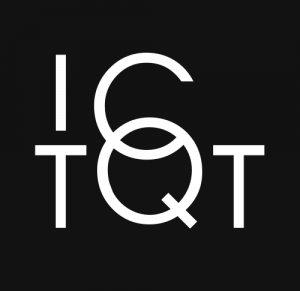Adjunct – Research Employee (postdoc) in the Quant-ERA call 2023 project: Unifying and Optimising Resources for Quantum Computation
We are looking for an enthusiastic and motivated Post-doctoral Researcher to work in the International Centre for Theory of Quantum Technologies (ICTQT) hosted by the University of Gdańsk. The position has been created as part of the "Unifying and Optimising Resources for Quantum Computation” project financed by the National Science Center under the Quant-ERA program (call 2023).
About the project
The project is a collaboration between
- John H. Selby at ICTQT, University of Gdańsk,
- Tobias J. Osborne, at Institut für Theoretische Physik, Leibniz Universität Hannover, and
- Shane Mansfield, and Pierre-Emmanuel Emeriau, at Quandela, Paris.
The project is aimed at identifying, unifying, and optimising resources for quantum computation. One of the longest standing open questions in quantum computation is to understand exactly which quantum resources are relevant for the quantum speedup. In this project there are three key aspects to this problem that we seek to address.
- The first is that, to date, many seemingly disparate resources have been identified as being responsible for the quantum speedup, and which of these is actually relevant seems to depend on which model of computation one considers. We seek to understand whether or not there is any underlying resource which underpins all of these, that is, to find a model independent resource which is responsible for the speedup.
- The second is that there is a large gulf between the kinds of resources
which are considered fundamental quantum resources and those that are typically relevant in a given experimental implementation. For example, nonlocality and contextuality are often considered the most fundamental signatures of the nonclassicality of nature, but (at least for near term devices) the more relevant resources are typically things such as quantum volume, cluster states, the number of T gates, or the depth of the quantum circuit. We aim to bridge this gulf by understanding how these fundamental and practical resources relate to one another. - The third aspect is to use the developed understanding of quantum resources for computation in order to develop new optimisation techniques for quantum technologies.
Key tools for the project will be drawn from, and contribute towards the development of: - structural methods (for example graphical languages) coming from logic and theoretical computer science that are well suited to addressing considerations like compositionality that we know to be at the heart of the differences between quantum and classical theories and phenomena;
- machine learning techniques, in particular, reinforcement learning, that are well suited to the allocation and optimisation of complex quantities such as quantum resources; and
- general methods from quantum information theory, in particular, the study of quantum resource theories.
We welcome candidates who are not necessarily experts in these fields but that have a deep interest in the goals of the project – we appreciate any other tools and insights that the candidate brings with them to the team!
Keywords: quantum computation, resource theories, categorical quantum mechanics, graphical calculi, machine learning, optimisation.
For further details on the project or the advertised position then please feel free to get in contact with dr. John Selby, e-mail: john.selby@ug.edu.pl.
More information is available on the quantera website: quantera.eu/resourceq/.
About ICTQT
The International Centre for Theory of Quantum Technologies (ICTQT) is a joint research unit of the University of Gdańsk (UG) and the Institute of Quantum Optics and Quantum Information of the Austrian Academy of Sciences (IQOQI-Vienna) subordinated to the UG Rector. ICTQT was established in 2018 as a part of the International Research Agendas program co-financed by the Foundation for Polish Science. The founders of ICTQT are Marek Zukowski and Pawel Horodecki.
ICTQT is a pioneering and leading quantum information research center in Poland, focused on quantum communication and new computing techniques. The purpose of the ICTQT is to conduct scientific research and development works under the adopted ICTQT Research Agenda, in an international academic environment and at the highest academic level, with due regard for high ethical standards, good academic practice in particular, and to disseminate knowledge.
ICTQT is located in Gdańsk, near Gdynia and Sopot, which together form Tri-City. The mentioned region is the cradle of Polish jazz and rock festivals. Moreover, it is one of the most beautifully located urban areas in Poland, with sandy sea beaches, lakes, and woods in the nearby area.
More information at: www.ictqt.ug.edu.pl
Job offer details, click here.
Recruitment form, click here.
Please submit the documents via email to ictqt-careers[at]ug.edu.pl,
in the email subject, please include reference code: Postdoc_JS_2024_06
Advert posted on May 14th, 2024
Advert valid until June 14th, 2024, 12:00 CET.

